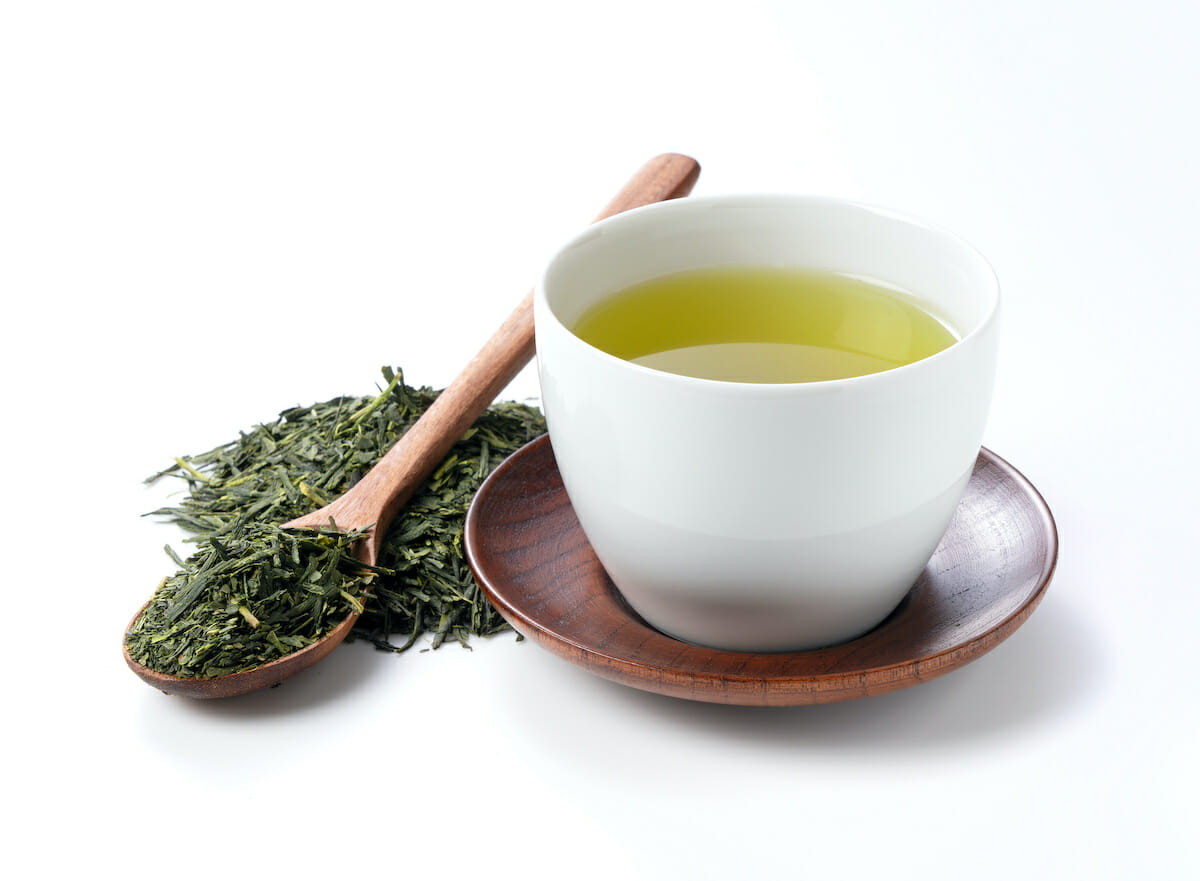An abstract of a study published in Current Developments in Nutrition looks at whether health risks associated with a set of risk factors known as metabolic syndrome may be diminished by consuming green tea extract.
The researchers from Pennsylvania State University and Ohio State University say they’re the first to study whether green tea’s anti-inflammatory benefits in the gut could reduce health risks associated with metabolic syndrome, a name referring to a cluster of factors that raise an individual’s risk of experiencing coronary heart disease, diabetes, and other health problems.
The American Heart Association (AHA) lists those risk factors as: high blood glucose, low HDL (“good” cholesterol), high triglycerides, large waist circumference, and high blood pressure. A 2015 study found nearly 35% of adult Americans and 50% of Americans age 60 and older were estimated to have metabolic syndrome.
Dr. Richard Bruno, senior study author and professor of human nutrition at Ohio State, has studied whether the properties of green tea can help to alleviate the risk of cardiometabolic disease for more than 15 years.
The study participants were given gummies containing catechins, which equaled five cups of green tea, for 28 days. All participants spent another 28 days taking a placebo, with a month in between where they took no supplements.
Since green tea is rich in polyphenols, a compound also found in foods like berries and apples, participants ate a diet low in polyphenols over the course of the study.
Researchers conducted tests monitoring the participants’ fasting blood glucose, insulin, lipids, and dietary polyphenols before the study began and on days 14 and 28 of each intervention.
The researchers found green tea extract lowered blood sugar and decreased gut inflammation and permeability in both healthy people and people with metabolic syndrome.
NOTE: Roxana Ehsani, a registered dietitian, nutritionist, and national media spokesperson for the Academy of Nutrition and Dietetics, noted that the amount of green tea extract consumed by the study’s participants could be problematic for some people.
Consuming green tea extract in high doses, she pointed out, can be toxic and lead to organ damage. Ehsani also said it would have been helpful if the study had noted whether the participants were given decaf or caffeinated green tea extract.
Individuals who want to consume green tea supplements should speak with their doctors first, Ehsani stressed, cautioning: “High doses of green tea extract may be toxic and may interfere with any other supplements or medications you are also taking,” she wrote.
This study is in line with others that show the health benefits of green tea, stated Kristin Kirkpatrick, a registered dietitian nutritionist and author.
“Inflammation is the base of any disease and can impact chronic disease risk, gut health, and mental health,” she wrote. “Therefore, regular consumption of green tea may help to benefit health beyond what was seen in this study.”
However, Kirkpatrick said she wouldn’t be quick to recommend consuming green tea extract to a client. “Since the supplement industry is not regulated, I would most likely focus on [drinking green tea] over a supplement form,” she said.
The key when drinking green tea, according to Kirkpatrick, “is to be a purist and drink green tea or matcha without any additives or added sugars.”
• A new study became the first to assess whether green tea’s anti-inflammatory benefits in the gut could impact health risks linked to metabolic syndrome.
• The study shows consuming green tea extract may reduce blood sugar levels and decrease gut inflammation and permeability.
• Researchers reported that both participants with metabolic syndrome and healthy participants saw health benefits from consuming extract.












